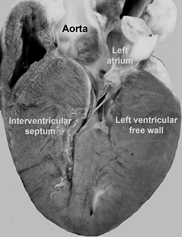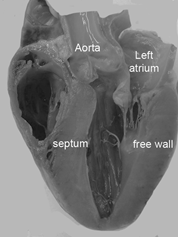Dissecting the genetic architecture of hypertrophic cardiomyopathy in cats
Hypertrophic cardiomyopathy (HCM) is the most common inherited cardiac disease in humans (1 in 500) and cats (1 in 7). The disease is strikingly similar in the two species, although the feline prevalence is much higher. HCM is characterized by significant clinical heterogeneity making the diagnosis challenging. Cats with subclinical disease can be difficult to identify without specialist testing; cats with severe disease can develop heart failure, painful paralysis due to thromboembolic complications, or they die suddenly and unexpectedly causing distress to cat owners and frustration to veterinarians.
In both humans and cats HCM is heritable. Previous studies in the Maine coon and Ragdoll cat breeds have identified two genetic risk factors also known to affect humans. However, these risk factors are not segregating among other cat breeds.At the RVC, a new scientific research project has just started with the goal of enhancing our understanding of HCM genetics and other factors driving disease severity across pedigree and non-pedigree cats.
This three year project, funded by the BBSRC (through a LIDo PhD studentship - student Jade Raffle) and Petplan, brings together scientists from the Royal Veterinary College (Drs Androniki Psifidi, David Connolly and Professor Virginia Luis Fuentes) and the University College London (Professor Perry Elliott) to identify these genetic and enviromental risk factors. A greater understanding of HCM genetics will facilitate development of targeted DNA tests that could be used to facilitate cat breeders to control HCM via selective breeding and identify genetically susceptible individuals prior to the onset of clinical signs. Results of this work may also lead to the discovery of new drug targets for HCM.


You may also be interested in:
-
New RVC research reveals correlation between livelihoods in the Bolivian Amazon and perceptions of jaguars
New research from the Royal Veterinary College (RVC), looking at how livelihoods influence views …

-(CA-ACEAA).jpg?v=638981101827551969)